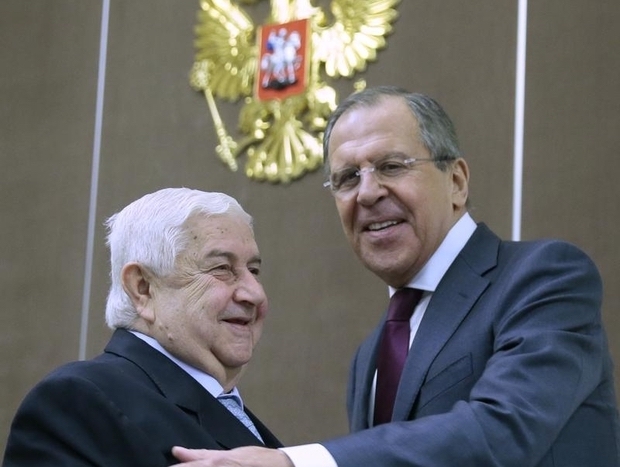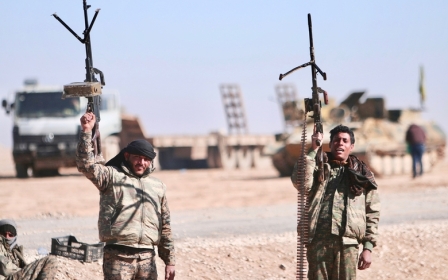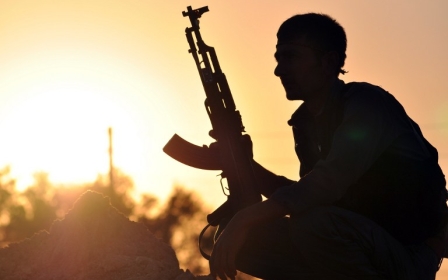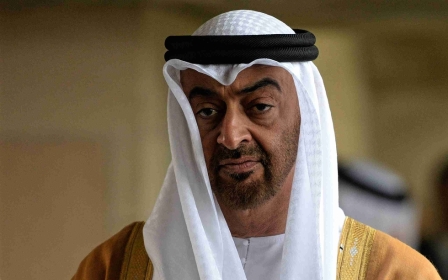Russia's Lavrov says ready to cooperate with US on Syria

Moscow is ready to cooperate with the United States on settling the Syrian crisis on Saturday after Washington called on Russia to end the six-year-long conflict, according to Russian news agencies.
Relations between the two countries, however, were seen reaching another low after the US fired missiles at Syria to punish Moscow's ally for its suspected use of poison gas earlier in April. Russia condemned the US action.
Russian Deputy Foreign Minister Mikhail Bogdanov said on Saturday that Russian authorities hope that the Syrian armed opposition will take part in Syria peace talks in Kazakhstan's Astana on 3-4 May, Interfax reported.
The US ambassador to the United Nations, Nikki Haley, this week pushed the UN Security Council to focus "all eyes and all pressure" on Russia to try to end the Syrian conflict and pressed for council action even if it faces a veto by Moscow.
"They are the ones who could stop this if they wanted to," Haley said on Thursday of Russia, an ally of Syrian President Bashar al-Assad during his country's civil war. "We need to put pressure on Russia."
Responding to Haley's remarks, deputy Russian UN ambassador Petr Iliichev told the council that Russia, Iran and Turkey were working to ensure compliance with a cessation of hostilities to allow delivery of humanitarian aid.
"Neither you nor Western colleagues said a single word about what you are doing to improve the situation," Iliichev said.
Lavrov's statement of willingness to cooperate with the US in solving the Syrian crisis came after the Kremlin dismissed plans that presidents Vladimir Putin and Donald Trump were due to meet later this month.
Russian presidential press secretary Dmitry Peskov on Thursday dubbed any talks between the two leaders as "wishful thinking".
Trump is scheduled to arrive in Europe on 25 May to take part in the NATO summit in Brussels, Belgium, and the G7 summit in Sicily, Italy.
A meeting between Putin and Trump has been rumoured since the latter's inauguration on 20 January.
However, the Russian and US leaders have so far only talked to each other by phone.
Earlier in April, US Secretary of State Rex Tillerson made his first official visit to Moscow, meeting both Putin and Lavrov.
During the visit, it was announced that a joint Russian-US expert group was being created, aimed at attempting to mend ties between Moscow and Washington, which slipped to almost Cold War-like levels under the Barack Obama administration.
Putin has said that Trump had failed to make good on his campaign promises to mend relations with Russia.
"I would say the level of trust [between Russia and the US] is at a workable level, especially in the military dimension, but it hasn't improved. On the contrary, it has degraded," the Russian president said.
Since the Syrian civil war began, Russia has vetoed eight resolutions on Syria to shield Assad's government, most recently blocking a council condemnation of a chemical weapons attack that killed dozens of people, many of whom were children. China has backed Russia and vetoed six resolutions.
Russia has provided aerial assistance to the Syrian government since it began its military intervention in Syria in 2015.
New MEE newsletter: Jerusalem Dispatch
Sign up to get the latest insights and analysis on Israel-Palestine, alongside Turkey Unpacked and other MEE newsletters
Middle East Eye delivers independent and unrivalled coverage and analysis of the Middle East, North Africa and beyond. To learn more about republishing this content and the associated fees, please fill out this form. More about MEE can be found here.




